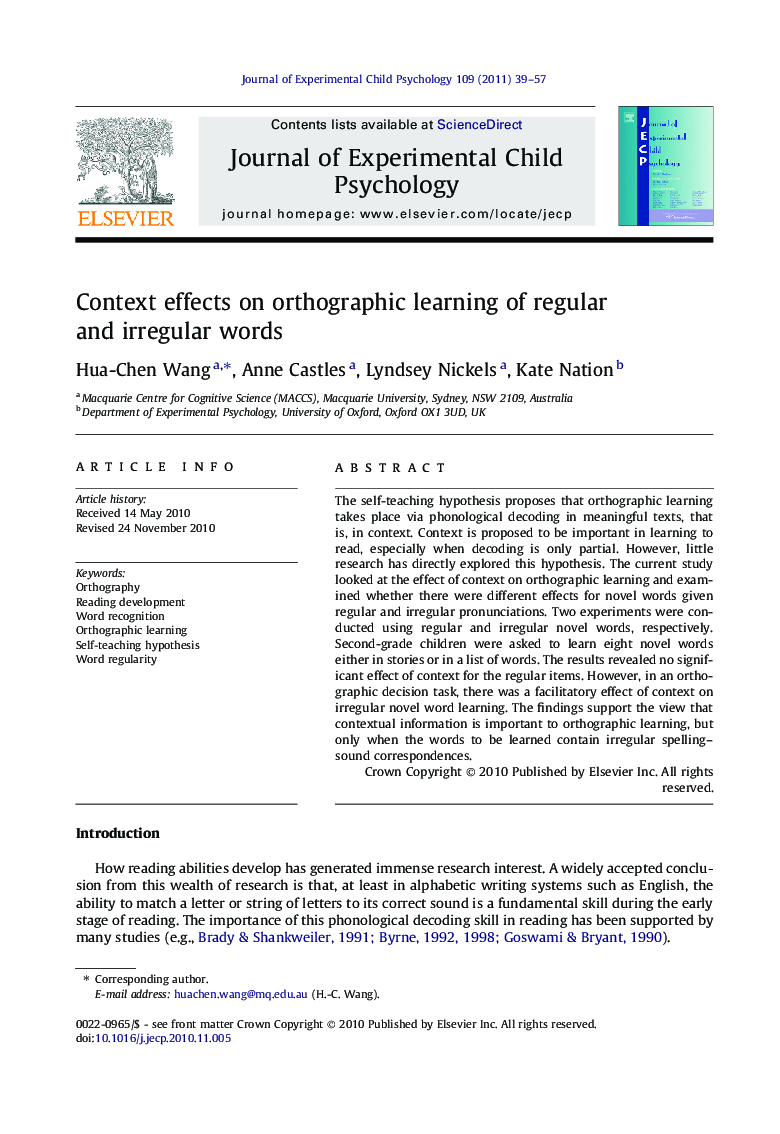| کد مقاله | کد نشریه | سال انتشار | مقاله انگلیسی | نسخه تمام متن |
|---|---|---|---|---|
| 918380 | 919478 | 2011 | 19 صفحه PDF | دانلود رایگان |

The self-teaching hypothesis proposes that orthographic learning takes place via phonological decoding in meaningful texts, that is, in context. Context is proposed to be important in learning to read, especially when decoding is only partial. However, little research has directly explored this hypothesis. The current study looked at the effect of context on orthographic learning and examined whether there were different effects for novel words given regular and irregular pronunciations. Two experiments were conducted using regular and irregular novel words, respectively. Second-grade children were asked to learn eight novel words either in stories or in a list of words. The results revealed no significant effect of context for the regular items. However, in an orthographic decision task, there was a facilitatory effect of context on irregular novel word learning. The findings support the view that contextual information is important to orthographic learning, but only when the words to be learned contain irregular spelling–sound correspondences.
Journal: Journal of Experimental Child Psychology - Volume 109, Issue 1, May 2011, Pages 39–57